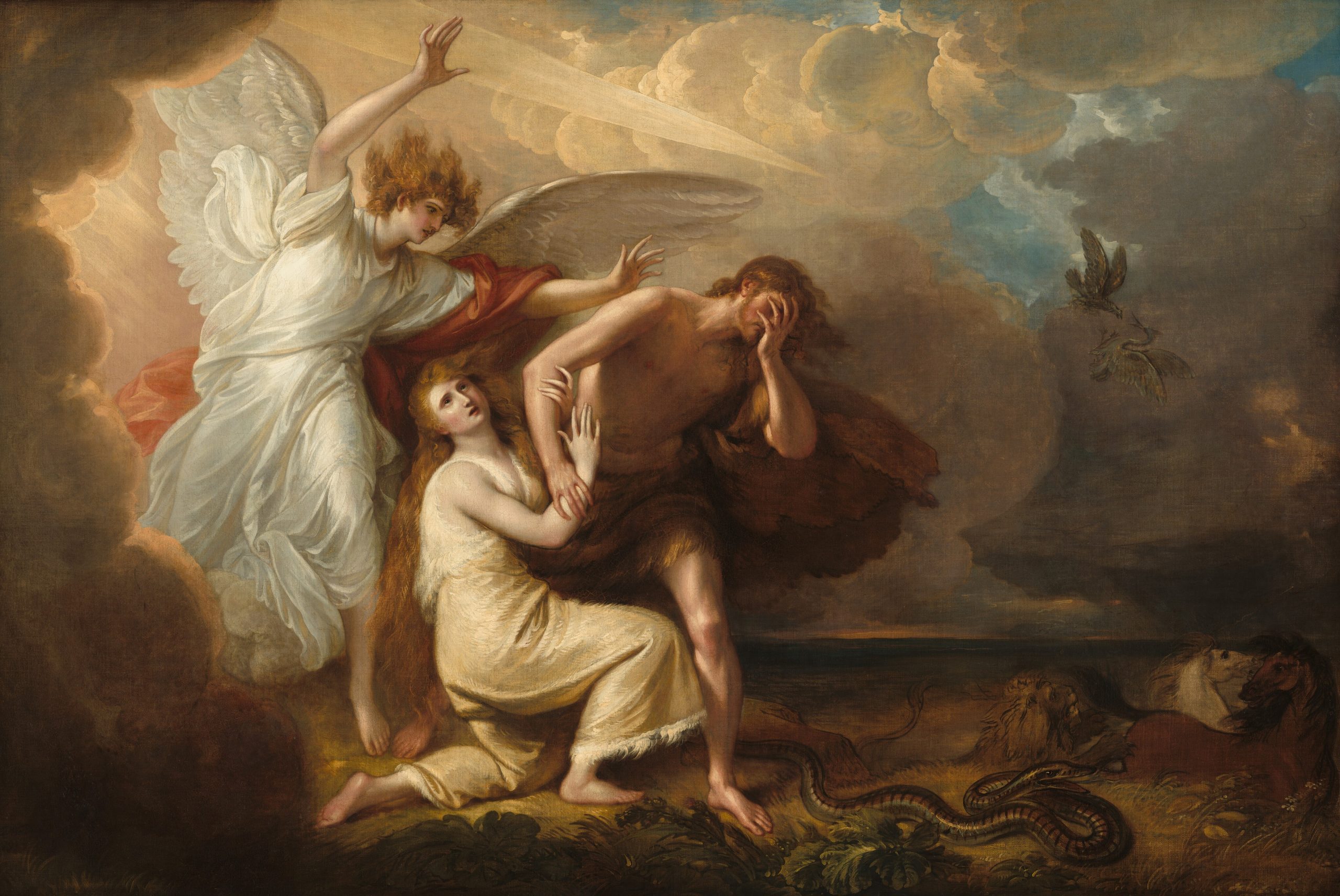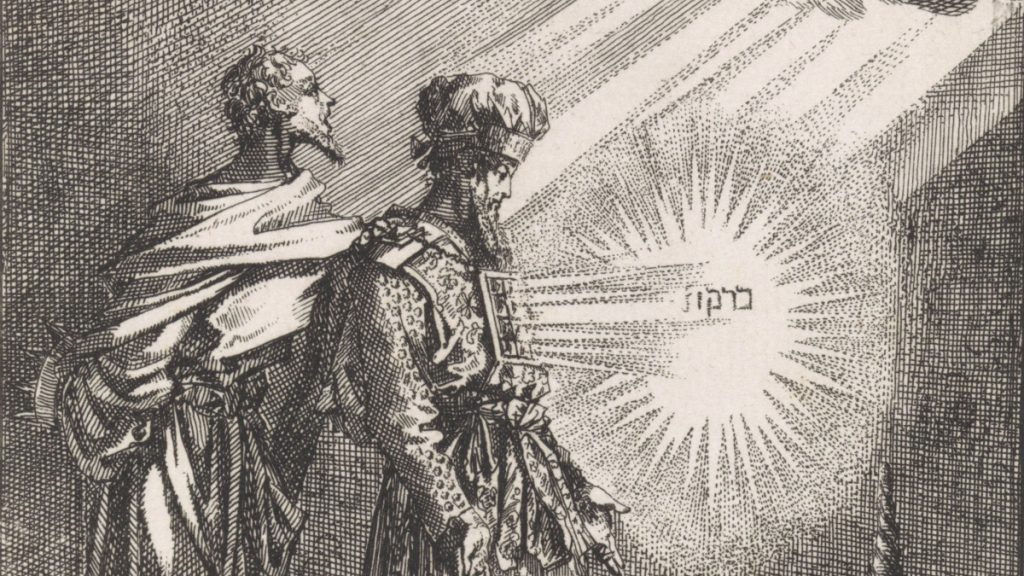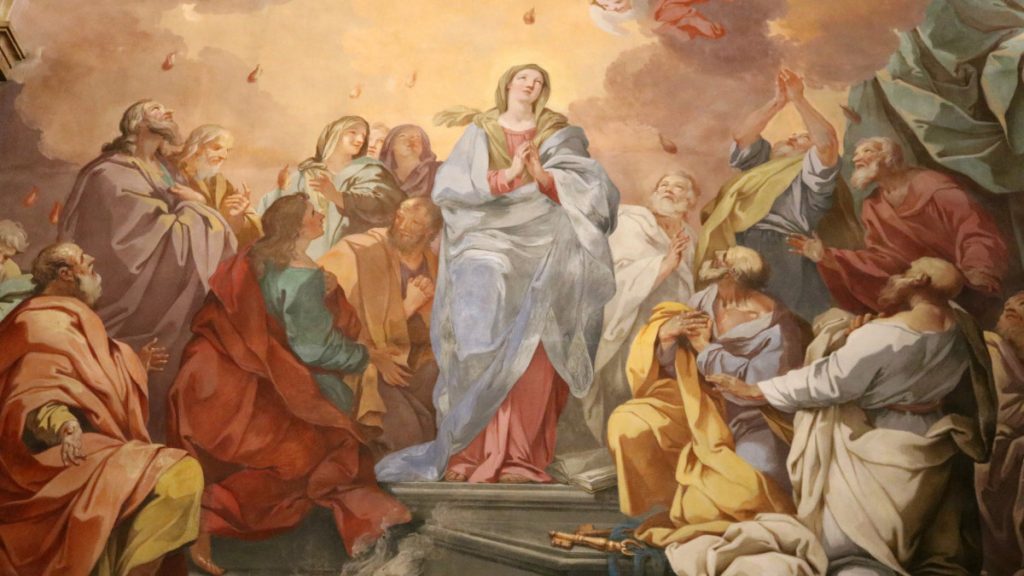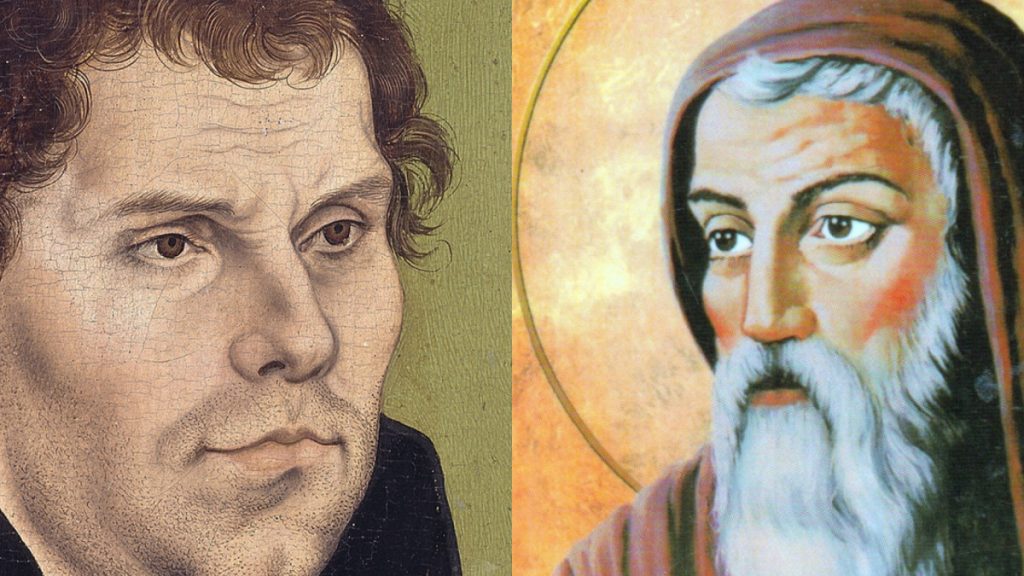(Updated December 19, 2024)
This Quote Archive is on the Sacrament of Marriage, Divorce, and Contraception. Each Archive is a treasury of original source quotes on various topics relevant to the Catholic Faith, and addressed in Becoming Catholic articles. They are intended to help people explore the “gold, silver, and precious gems” that have been mined and sifted from the sources of the Great Tradition by Eternal Christendom as a labor of love for our readers, and all seekers of Truth. They are periodically updated as more research is completed.
Some Quote Archives cover topics that include multiple sub-topics, in which individual quotes only address particular sub-topics. Therefore, in order to help readers more easily identify the sub-topics addressed in each quote, they will be listed in the order below after each citation.
The sub-topics in this Quote Archive are:
- SACRAMENT
- CONTRACEPTION
- DIVORCE
Apostolic Era Documents
The Shepherd of Hermas (c. 80)
(Book 2, Part 4, Ch. 1) | DIVORCE
I said to him, “Sir, permit me to ask you a few questions.” “Say on,” said he. And I said to him, “Sir, if anyone has a wife who trusts in the Lord, and if he detect her in adultery, does the man sin if he continue to live with her?” And he said to me, “As long as he remains ignorant of her sin, the husband commits no transgression in living with her. But if the husband know that his wife has gone astray, and if the woman does not repent, but persists in her fornication, and yet the husband continues to live with her, he also is guilty of her crime, and a sharer in her adultery.”
And I said to him, “What then, sir, is the husband to do, if his wife continue in her vicious practices?” And he said, “The husband should put her away, and remain by himself. But if he put his wife away and marry another, he also commits adultery” (Matt. 5:32; 19:9).
And I said to him, “What if the woman put away should repent, and wish to return to her husband: shall she not be taken back by her husband?” And he said to me, “Assuredly. If the husband do not take her back, he sins, and brings a great sin upon himself; for he ought to take back the sinner who has repented. But not frequently. For there is but one repentance to the servants of God. In case, therefore, that the divorced wife may repent, the husband ought not to marry another, when his wife has been put away. In this matter man and woman are to be treated exactly in the same way.
St. Barnabas (first century)
St. Barnabas, Letter of Barnabas (c. 75)
Moreover, he has rightly detested the weasel. For he means, “Thou shalt not be like to those whom we hear of as committing wickedness with the mouth, on account of their uncleanness; nor shall thou be joined to those impure women who commit iniquity with the mouth. For this animal conceives by the mouth.”
St. Justin Martyr (c. 100-165) | EAST
St. Justin Martyr, First Apology (151)
(Ch. 15) | DIVORCE
Concerning chastity, He [Christ] uttered such sentiments as these: “Whosoever looks upon a woman to lust after her, hath committed adultery with her already in his heart before God.” And, “If thy right eye offend thee, cut it out; for it is better for thee to enter into the kingdom of heaven with one eye, than, having two eyes, to be cast into everlasting fire.” And, “Whosoever shall marry her that is divorced from another husband, commits adultery” (Matt. 5:28-29, 32). And, “There are some who have been made eunuchs of men, and some who were born eunuchs, and some who have made themselves eunuchs for the kingdom of heaven’s sake; but all cannot receive this saying” (Matt. 19:12). So that all who, by human law, are twice married, are in the eye of our Master sinners, and those who look upon a woman to lust after her. For not only he who in act commits adultery is rejected by Him, but also he who desires to commit adultery: since not only our works, but also our thoughts, are open before God.
St. Clement of Alexandria (c. 150-c. 215) | EAST
St. Clement of Alexandria, Christ the Educator (191)
(Book 2, Ch. 10, §§91-93, 95) (pgs. 170, 171, 173) | CONTRACEPTION
(§91) …This [marital relations] is to share in God’s own work of creation, and in such a work the seed ought not be wasted nor scattered thoughtlessly nor sown in a way it cannot grow. (§92) As an illustration of this last restriction, the same Moses forbade the Jews to approach even their own wives if they happened to be in the period of menstruation [Lev. 15:19]. The reason is that it is wrong to contaminate fertile seed, destined to become a human being, with corrupt matter of the body, or to allow it be diverted from the furrow of the womb and swept away in a fetid flow of matter and excrement.
He [Moses] discouraged the ancient Jews, also, from having relations with a wife already with child. Pleasure sought for its own sake, even within the marriage bonds, is a sin and contrary both to law and to reason… 170 | 171 (§93) It is wrong, indeed, to interfere with the workings of nature by indulging in the extravagances of wantonness… 171 | 173
(§95) …Yet, marriage in itself merits esteem and the highest approval, for the Lord wished men to “be fruitful and multiply” (Gen. 1:28). He did not tell them, however, to act like liberties, nor did He intend them to surrender themselves to pleasure as though born only to indulge in sexual relations. Let the Educator [Christ] put us to shame with the word of Ezekiel: “Put away your fornications” (Ezek. 43:9). Why, even unreasoning beasts know enough not to mate at certain times. To indulge in intercourse without intending children is to outrage nature, whom we should take as our instructor. Her wise directions concerning the periods of life are meant to be obeyed; I mean that she allows us to marry at any time but after the advent of old age and during childhood (for she does not permit the one to marry yet, the other, any more). The attempt to procreate children is marriage, but the promiscuous scattering of seed contrary to law and to reason definitely is not.
St. Clement of Alexandria, Stromata (208)
Since pleasure and lust seem to fall under marriage, it must also be treated of. Marriage is the first conjunction of man and woman for the procreation of legitimate children…
Now that the Scripture counsels marriage, and allows no release from the union, is expressly contained in the law, “You shall not put away thy wife, except for the cause of fornication”; and it regards as fornication, the marriage of those separated while the other is alive. Not to deck and adorn herself beyond what is becoming, renders a wife free of calumnious suspicion, while she devotes herself assiduously to prayers and supplications; avoiding frequent departures from the house, and shutting herself up as far as possible from the view of all not related to her, and deeming housekeeping of more consequence than impertinent trifling. “He that takes a woman that has been put away,” it is said, “commits adultery; and if one puts away his wife, he makes her an adulteress” (Matt. 5:32; 19:9); that is, compels her to commit adultery. And not only is he who puts her away guilty of this, but he who takes her, by giving to the woman the opportunity of sinning; for did he not take her, she would return to her husband.
St. Hippolytus of Rome (c. 170-c. 235) | WEST
St. Hippolytus of Rome, Refutation of All Heresies (225)
(Book 9, Ch. 7) | CONTRACEPTION
Whence women, reputed believers, began to resort to drugs for producing sterility, and to gird themselves round, so to expel what was being conceived on account of their not wishing to have a child either by a slave or by any paltry fellow, for the sake of their family and excessive wealth. Behold, into how great impiety that lawless one has proceeded, by inculcating adultery and murder at the same time! And withal, after such audacious acts, they, lost to all shame, attempt to call themselves a Catholic Church!
Origen (c. 184-c. 253) | EAST
Origen, Commentary on Matthew (284)
But as a woman is an adulteress, even though she seem to be married to a man, while the former husband is still living, so also the man who seems to marry her who has been put away, does not so much marry her as commit adultery with her according to the declaration of our Savior.
Lactantius (c. 250-c. 325) | WEST
Lactantius, The Divine Institutes (307)
SOURCE (for quotes with page numbers): Lactantius, Sister Mary Francis McDonald, OP, trans., The Fathers of the Church, Vol. 49: Lactantius, The Divine Institutes, Books I-VII (Washington, DC: The Catholic University of America Press, 1964).
But truly parricides [those who kill their children] complain of the scantiness of their means, and allege that they have not enough for bringing up more children; as though, in truth, their means were in the power of those who possess them, or God did not daily make the rich poor, and the poor rich. Wherefore, if any one on account of poverty shall be unable to bring up children, it is better to abstain from marriage than with wicked hands to mar the work of God.
(Book 6, Ch. 23) (pgs. 459-60) | CONTRACEPTION
It is necessary, therefore, for each one to propose to himself that the union of the two sexes has been given for the sake of generation, and that this law has been set in these living powers that they may prepare for succession. Just as God gave us eyes, not that we might look at and seize pleasure, but that we might see on account of them the actions which pertain to the necessity of life, so the genital parts of the body, which their very name teaches, have been received by us for no other reason than the procreation of offspring. We must obey this divine law with the greatest devotion. Let all who will profess to be the disciples of God be so checked and so trained that they can control themselves. But those who indulge in pleasures, who are subservient to passion, make over their souls to their bodies and condemn them to death, because they have devoted themselves to the body, and death has power over this. Let each one, then, as far as he is able, train himself to modesty, cultivate shame, protect chastity of both conscience and mind. Let him not only obey the public laws, but let him who follows the law of God be above all laws. If 459 | 460 he gets accustomed to these goods, then, he will be ashamed to deviate to worse things. Let only the right and good things please, for these are more pleasant to the better people than depraved and ignoble things are to the worse.
St. Epiphanius of Cyprus/Salamis (c. 310/320-403) | EAST
St. Epiphanius of Salamis, Panarion
But although they [Egyptian heretics] have sex with each other they renounce procreation. It is for enjoyment, not procreation, that they eagerly pursue seduction, since the devil is mocking people like these, and making fun of the creature fashioned by God. They come to climax [orgasm] but absorb the seeds of their dirt, not by implanting them for procreation, but by eating the dirty stuff themselves.
St. Basil (330-379) | EAST
St. Basil, Letter 199: To Amphilochius, Concerning the Canons (375)
(§37) (pg. 58) | DIVORCE
He who has married after the wife of another has been taken from him will be charged with adultery in the case of the first woman, but in the case of the second will be guiltless.
St. Ambrose of Milan (c. 340-397) | WEST
St. Ambrose, On Abraham (387)
(Book 1, Part 7, §59) (pg. 29) | DIVORCE
It is allowed to none to know a woman other than his wife. Therefore, the right to marry is given to you, lest you fall into a snare and sin with a strange woman. You are bound to your wife; do not seek release because you are not permitted to marry another while your wife lives [Rom. 7:2-3]. For to seek another woman when you have your own is a crime of adultery more serious when you think that authority for your sin may be obtained from the Law. The sin would be more tolerable if it were to lie hidden than if its justification were to be usurped: nor is sinning with another man’s life alone adultery, but every union which lacks the legality of marriage.
St. Ambrose, Commentary on the Gospel of Luke
(Book 8, §5) (pg. 271) | DIVORCE
So, you cast off your wife as though by right and without remorse. You cast her off and think it lawful? Yes, civil law allows it, I know, but divine law does not. You observe man-made laws, but I would caution you to fear God. Listen to the law of God to which even our own lawmakers defer: “What God has joined together, let no man put asunder” (Matt. 19:6).
St. Jerome (c. 342/347-420) | EAST/WEST
St. Jerome, Against Jovinian (393)
But I wonder why he set Judah and Tamar before us for an example [Gen. 38], unless perchance even harlots give him pleasure; or Onan who was slain because he grudged his brother seed [Gen. 38:9]. Does he imagine that we approve of any sexual intercourse except for the procreation of children?
St. Jerome, Commentary on Matthew (398)
(Commentary on 19:9) (pgs. 216-17) | DIVORCE
Therefore, whenever there is fornication and suspicion of fornication, a wife is freely divorced. And since it could have happened that someone brought a false charge against an innocent person, and on account of the second marriage-union hurled a charge at the first wife, it is commanded to divorce the first wife in such a way that he has no second wife while the first one is living. For he says the following: If you divorce your wife not on account of lust, but on account of an injury, why after the experience of the first unhappy marriage do you admit yourself into the danger of a new one? And besides, it could have come to pass that according to the same law, the wife too would have given a bill of divorce to the husband. And so by the same precaution, it is commanded that she not receive a second husband. And since a prostitute and she who had once been an adulteress were not afraid of reproach, the second husband 216 | 217 is commanded that if he marries such a woman, he will be under the charge of adultery.
St. Jerome, Letter 22: To Eustochium (384)
I cannot bring myself to speak of the many virgins who daily fall and are lost to the bosom of the church, their mother: stars over which the proud foe sets up his throne [Isa. 14:13], and rocks hollowed by the serpent that he may dwell in their fissures. You may see many women widows before wedded, who try to conceal their miserable fall by a lying garb. Unless they are betrayed by swelling wombs or by the crying of their infants, they walk abroad with tripping feet and heads in the air. Some go so far as to take potions, that they may insure barrenness, and thus murder human beings almost before their conception. Some, when they find themselves with child through their sin, use drugs to procure abortion, and when (as often happens) they die with their offspring, they enter the lower world laden with the guilt not only of adultery against Christ but also of suicide and child murder.
St. Jerome, Letter 55: To Amandus (396)
(§3) | DIVORCE
You must not speak to me of the violence of a ravisher, a mother’s pleading, a father’s bidding, the influence of relatives, the insolence and the intrigues of servants, household losses. A husband may be an adulterer or a sodomite, he may be stained with every crime and may have been left by his wife because of his sins; yet he is still her husband and, so long as he lives, she may not marry another.
St. John Chrysostom (c. 347-407) | EAST
St. John Chrysostom, Homily 28 on Matthew
Nay rather there is no need even to ask, because in truth all men know that they who are under the power of this disease [covetousness] are wearied even of their father’s old age; and that which is sweet, and universally desirable, the having children, they esteem grievous and unwelcome: many at least with this view have even paid money to be childless, and have maimed their nature, not only by slaying their children after birth, but by not suffering them even to be born at all.
St. John Chrysostom, Homily 62 on Matthew
For the excision of a member [penis] is not able to quell such waves, and to make a calm, like the curb of reason; or rather, reason only can do this.
For this intent therefore He brought in those others, even that He might encourage these, since if this was not what He was establishing, what means His saying concerning the other eunuchs? But when He says that they made themselves eunuchs, He means not the excision of the members, far from it, but the putting away of wicked thoughts. Since the man who hath mutilated himself, in fact, is subject even to a curse, as Paul says, “I would they were even cut off which trouble you” (Gal. 5:12). And very reasonably. For such a one is venturing on the deeds of murderers, and giving occasion to them that slander God’s creation, and opens the mouths of the Manichaeans, and is guilty of the same unlawful acts as they that mutilate themselves amongst the Greeks. For to cut off our members has been from the beginning a work of demoniacal agency, and satanic device, that they may bring up a bad report upon the work of God, that they may mar this living creature, that imputing all not to the choice, but to the nature of our members, the more part of them may sin in security, as being irresponsible; and doubly harm this living creature, both by mutilating the members, and by impeding the forwardness of the free choice in behalf of good deeds.
St. John Chrysostom, Homily 24 on Romans
Why then bring disgrace upon all these? Why sow where the ground makes it its care to destroy the fruit? Where there are many efforts at abortion? Where there is murder before the birth? For even the harlot you do not let continue a mere harlot, but make her a murderess also. You see how drunkenness leads to whoredom, whoredom to adultery, adultery to murder; or rather to a something even worse than murder. For I have no name to give it, since it does not take off the thing born, but prevent its being born. Why then do you abuse the gift of God, and fight with His laws, and follow after what is a curse as if a blessing, and make the chamber of procreation a chamber for murder, and arm the woman that was given for childbearing unto slaughter? For with a view to drawing more money by being agreeable and an object of longing to her lovers, even this she is not backward to do, so heaping upon thy head a great pile of fire. For even if the daring deed be hers, yet the causing of it is yours. Hence too come idolatries, since many, with a view to become acceptable, devise incantations, and libations, and love-potions, and countless other plans. Yet still after such great unseemliness, after slaughters, after idolatries, the thing seems to many to belong to things indifferent, aye, and to many that have wives too. Whence the mingle (φορυτὸς) of mischief is the greater. For sorceries [or poisonings] are applied not to the womb that is prostituted, but to the injured wife, and there are plottings without number, and invocations of devils, and necromancies, and daily wars, and truceless fightings, and home-cherished jealousies.
St. John Chrysostom, Commentary on Galatians
Observe how bitterly he speaks here against their deceivers. At the outset he directed his charge against those who were deceived, and called them foolish, once and again. Now, having sufficiently corrected and instructed them, he turns to their deceivers. And you should remark his wisdom in the manner in which he admonishes and chastens the former as his own children, and as capable of receiving correction, but their deceivers he cuts off, as aliens and incurably depraved. And this he does, partly, when he says, “he shall bear his judgment whosoever he be”; partly when he utters the imprecation against them, “I would that they which unsettle you would even cut themselves off.” And he says well “that unsettle you.” For they had compelled them to abandon their own fatherland, their liberty, and their heavenly kindred, and to seek an alien and foreign one; they had cast them out of Jerusalem which is above and free, and compelled them to wander forth as captives and emigrants. On this account he curses them; and his meaning is as follows, For them I have no concern, “A man that is heretical after the first and second admonition refuse” (Tit. 3:10). If they will, let them not only be circumcised, but mutilated. Where then are those who dare to mutilate themselves; seeing that they draw down the Apostolic curse, and accuse the workmanship of God, and take part with the Manichees? For the latter call the body a treacherous thing, and from the evil principle; and the former by their acts give countenance to these wretched doctrines, cutting off the member as being hostile and treacherous.
St. Augustine (354-430) | WEST
St. Augustine, On the Morals of the Manichaeans (388)
This proves that you approve of having a wife, not for the procreation of children, but for the gratification of passion. In marriage, as the marriage law declares, the man and woman come together for the procreation of children. Therefore whoever makes the procreation of children a greater sin than copulation, forbids marriage, and makes the woman not a wife, but a mistress, who for some gifts presented to her is joined to the man to gratify his passion. Where there is a wife there must be marriage. But there is no marriage where motherhood is not in view; therefore neither is there a wife. In this way you forbid marriage. Nor can you defend yourselves successfully from this charge, long ago brought against you prophetically by the Holy Spirit [1 Tim. 4:3].
St. Augustine, Reply to Faustus the Manichaean (400)
The doctrine that the production of children is an evil, directly opposes the next precept, “Thou shall not commit adultery”; for those who believe this doctrine, in order that their wives may not conceive, are led to commit adultery even in marriage. They take wives, as the law declares, for the procreation of children; but from this erroneous fear of polluting the substance of the deity, their intercourse with their wives is not of a lawful character; and the production of children, which is the proper end of marriage, they seek to avoid. As the apostle long ago predicted of you, you did indeed forbid to marry, for you seek to destroy the purpose of marriage [1 Tim. 4:3]. Thy doctrine turns marriage into an adulterous connection, and the bed-chamber into a brothel.
For as the eternal law—that is, the will of God the Creator of all—for the preservation of the natural order, permits the indulgence of the bodily appetite under the guidance of reason in sexual intercourse, not for the gratification of passion, but for the continuance of the race through the procreation of children; so, on the contrary, the unrighteous law of the Manicheans, in order to prevent their god, whom they bewail as confined in all seeds, from suffering still closer confinement in the womb, requires married people not on any account to have children, their great desire being to liberate their god.
St. Augustine, The Good of Marriage (401)
(Ch. 10, §11) (pgs. 24-25) | CONTRACEPTION
The intercourse necessary for generation is without fault and it alone belongs to marriage. The intercourse that goes beyond this necessity no longer obeys reason but passion. Still, not to demand this intercourse but to render it to a spouse, lest he sin mortally by fornication, concerns the married persons. But, if both are subject to such concupiscence, they do something that manifestly does not belong to marriage. However, if in their union they love what is proper rather than what is improper, that is, what belongs to marriage rather than that which does not, this is granted to them with 24 | 25 the Apostle as an authority. They do not have a marriage that encourages this crime, but one that intercedes for them, if they do not turn away from themselves the mercy of God, either by not abstaining on certain days so as to be free for prayers, and by their abstinence as by their fasts they put their prayers in a favorable light, or by changing the natural use into that use which is contrary to nature [anal and oral sex], which is all the more damnable in a spouse.
St. Augustine, On Marriage and Concupiscence (419)
It is certainly not fecundity only, the fruit of which consists of offspring, nor chastity only, whose bond is fidelity, but also a certain sacramental bond in marriage which is recommended to believers in wedlock. Accordingly it is enjoined by the apostle: “Husbands, love your wives, even as Christ also loved the Church” (Eph. 5:25). Of this bond the substance [res sacramenti] undoubtedly is this, that the man and the woman who are joined together in matrimony should remain inseparable as long as they live; and that it should be unlawful for one consort to be parted from the other, except for the cause of fornication [Matt. 5:32]. For this is preserved in the case of Christ and the Church; so that, as a living one with a living one, there is no divorce, no separation for ever. And so complete is the observance of this bond in the city of our God, in His holy mountain [Ps. 48:2]—that is to say, in the Church of Christ—by all married believers, who are undoubtedly members of Christ, that, although women marry, and men take wives, for the purpose of procreating children, it is never permitted one to put away even an unfruitful wife for the sake of having another to bear children.
It is, however, one thing for married persons to have intercourse only for the wish to beget children, which is not sinful: it is another thing for them to desire carnal pleasure in cohabitation, but with the spouse only, which involves venial sin. For although propagation of offspring is not the motive of the intercourse, there is still no attempt to prevent such propagation, either by wrong desire or evil appliance. They who resort to these, although called by the name of spouses, are really not such; they retain no vestige of true matrimony, but pretend the honorable designation as a cloak for criminal conduct. Having also proceeded so far, they are betrayed into exposing their children, which are born against their will. They hate to nourish and retain those whom they were afraid they would beget. This infliction of cruelty on their offspring so reluctantly begotten, unmasks the sin which they had practiced in darkness, and drags it clearly into the light of day. The open cruelty reproves the concealed sin. Sometimes, indeed, this lustful cruelty, or, if you please, cruel lust, resorts to such extravagant methods as to use poisonous drugs to secure barrenness; or else, if unsuccessful in this, to destroy the conceived seed by some means previous to birth, preferring that its offspring should rather perish than receive vitality; or if it was advancing to life within the womb, should be slain before it was born. Well, if both parties alike are so flagitious, they are not husband and wife; and if such were their character from the beginning, they have not come together by wedlock but by debauchery. But if the two are not alike in such sin, I boldly declare either that the woman is, so to say, the husband’s harlot; or the man the wife’s adulterer.
(Book 1, Ch. 19/17) | SACRAMENT | CONTRACEPTION | DIVORCE
In matrimony, however, let these nuptial blessings be the objects of our love—offspring, fidelity, the sacramental bond. Offspring, not that it be born only, but born again [in baptism]; for it is born to punishment unless it be born again to life. Fidelity, not such as even unbelievers observe one towards the other, in their ardent love of the flesh. For what husband, however impious himself, likes an adulterous wife? Or what wife, however impious she be, likes an adulterous husband? This is indeed a natural good in marriage, though a carnal one. But a member of Christ ought to be afraid of adultery, not on account of himself, but of his spouse; and ought to hope to receive from Christ the reward of that fidelity which he shows to his spouse. The sacramental bond, again, which is lost neither by divorce nor by adultery, should be guarded by husband and wife with concord and chastity. For it alone is that which even an unfruitful marriage retains by the law of piety, now that all that hope of fruitfulness is lost for the purpose of which the couple married. Let these nuptial blessings be praised in marriage by him who wishes to extol the nuptial institution. Carnal concupiscence, however, must not be ascribed to marriage: it is only to be tolerated in marriage. It is not a good which comes out of the essence of marriage, but an evil which is the accident of original sin.
St. Augustine, On Adulterous Marriages (419)
(Book 1, Ch. 9, §9) (pgs. 71-72) | DIVORCE
It cannot be correctly affirmed either that the husband who puts away his wife because of immorality and marries another does not commit adultery. For there is adultery, also, on the part of those who marry others after the repudiation of their former wives because of immorality. Yet, this adultery is certainly less serious than that of men who put them away not because of fornication and take other wives. In fact, just as it has been said, “He who knows how to do good, and does not do it, commits a sin,” it can likewise be asserted, according to the same principle, that he who puts away his wife without the cause of fornication and 71 | 72 marries another commits adultery.
Therefore, when, in the one case, we say that whoever marries a woman put away for other than the cause of immorality by her husband commits adultery, we most certainly state the truth; yet, we do not thereby acquit of the crime the one who marries a woman who has been put away on account of immorality, and we also have not the slightest doubt that each of them is an adulterer. We likewise declare him to be an adulterer who puts away his wife without cause of immorality and marries another; yet we do not therein defend from the taint of this sin the man who puts away his wife because of immorality and marries another. For, while the one offense is greater than the other, we yet recognize both men to be adulterers. There is no one so unreasonable as to say that he who marries a woman whose husband has put her away because of immorality is not an adulterer, while he says that the one who marries a woman who has been cast off without the ground of immorality is an adulterer. Both of these men are guilty of adultery.
(Book 2, Ch. 4, §4) (pg. 105) | DIVORCE
For these reasons, the accepted teaching is: “The woman is bound as long as her husband is alive,” that is to say, as long as he has not yet departed from the body. “For the married woman is bound by the Law, as long as her husband is alive,” that is to say, with body intact. “If he dies,” that is, if he departs from the body, “she is released from the Law which binds her to her husband. Therefore, while her husband is alive, she will be called an adulteress, if she be with another man; but if her husband dies, she is set free from the law [of her husband] so that she is not an adulteress, if she has been with another man” (Rom. 7:2-3). The words of the Apostle, so often repeated, so often impressed, are true, living, rational, and unequivocal. The woman begins to be the wife of no later husband, unless she has ceased to be the wife of her former one. But, she will cease to be the wife of the former one, if he should die, and not if he should commit fornication. As a consequence, a spouse is lawfully put away because of fornication, but the bond of chastity remains. For this reason, whoever marries a woman who has been put away, even for the reason of fornication, incurs the guilt of adultery.
St. Caesarius of Arles (c. 468/470-542) | WEST
St. Caesarius of Arles, Sermon 1 (522)
(§12) (pg. 13) | CONTRACEPTION
Is anyone unable to warn that no woman should accept a potion to prevent conception or to condemn within herself the nature which God wanted to be fruitful? Indeed, she will be held guilty of as many murders as the number of those she might have conceived or borne, and unless suitable penance saves her she will be condemned to eternal death in hell. If a woman does not want to bear children she should enter upon a pious agreement with her husband [to abstain], for only the abstinence of a Christian woman is chastity.
Councils
Ecumenical Council of Nicaea (325)
If any one in sickness has been subjected by physicians to a surgical operation, or if he has been castrated by barbarians, let him remain among the clergy; but, if any one in sound health has castrated himself, it behooves that such an one, if [already] enrolled among the clergy, should cease [from his ministry], and that from henceforth no such person should be promoted. But, as it is evident that this is said of those who willfully do the thing and presume to castrate themselves, so if any have been made eunuchs by barbarians, or by their masters, and should otherwise be found worthy, such men the Canon admits to the clergy.








